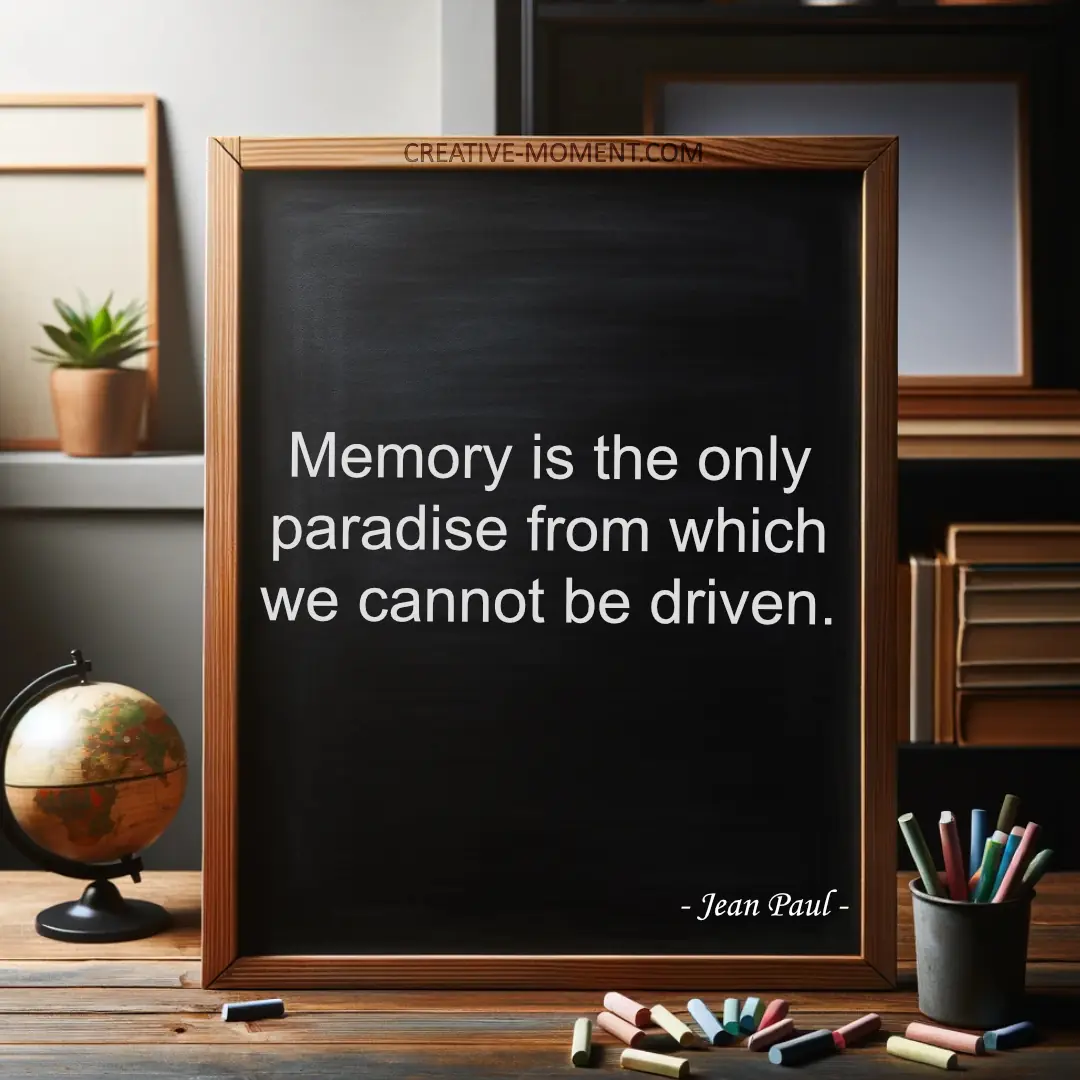Saying: Memory is the only paradise from which we cannot be driven
Info
- Title: Memory is the only paradise from which we cannot be driven
- Type: Sayings
- Category: Grief and Comfort
- Print: Download as PDF for printing
Memory is the only paradise from which we cannot be driven. This renowned quotation by German author Jean Paul vividly describes the enduring nature of memories. It provides comforting insight into the untouchable power of internal retreat into thoughts and emotions.
Origin and Usage of the Saying
The quote is clearly attributed to Jean Paul (Johann Paul Friedrich Richter, 1763–1825). The original German wording is Die Erinnerung ist das einzige Paradies, aus dem wir nicht vertrieben werden können. Jean Paul, a significant author of German Romanticism and early Classicism, used this imagery to express the emotional significance of memories. The saying has been widely cited in literature anthologies, reflection collections, and reading circles since the 19th century, establishing its cultural prominence.
Meaning and Interpretation of the Saying
The saying conveys a core insight: memory possesses an inherent permanence, acting as an internal paradise that remains accessible regardless of external changes.
It emphasizes that memories form a type of emotional sanctuary. Even amidst loss or change, this inner space persists and contributes to psychological stability.
The quote addresses a universal human need for continuity and security. Memories form a stable core of identity, independent of external circumstances.
Furthermore, the saying reflects on the concept of emotional resilience: by understanding memory as a refuge, loss is perceived not as destruction but as part of an internally reflective approach to life.

